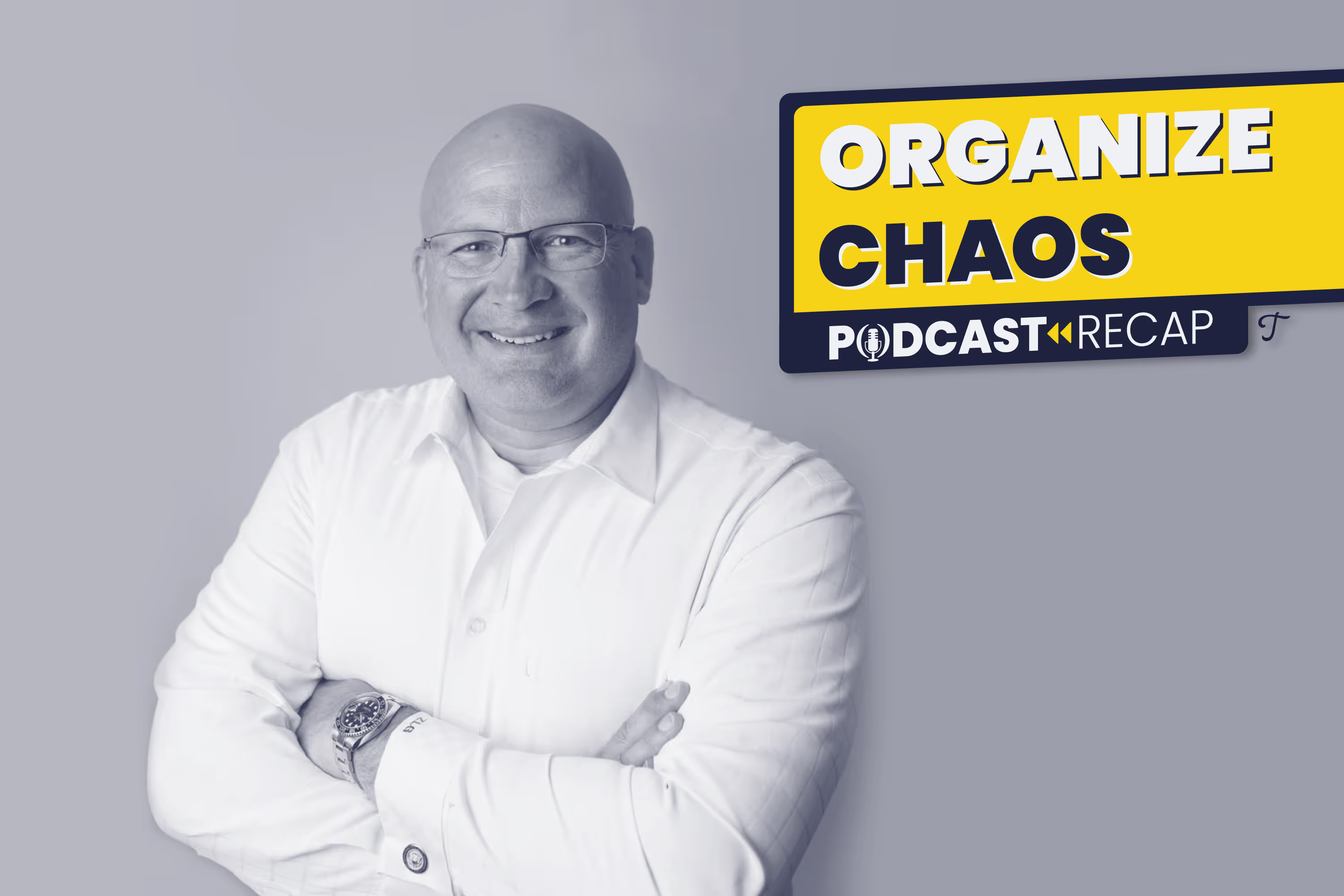
Articles
3 Questions Every Entrepreneur Should Ask About Their Business
June 10, 2022

There aren’t many people who can claim to be successful entrepreneurs. And there are even fewer who can say they’re also veterans and former volunteer firefighters.
Meet Zachary Green, founder of LumAware and Foxfire, U.S. Marine Corps Veteran, and former fire lieutenant. Zachary also wrote the “Warrior Entrepreneur” and was recently on the “Organize Chaos” podcast to talk about the book and share his incredible experience.
In this episode, Zachary talks about how he got into entrepreneurship and shares three critical questions for every business leader:
1. Have you solved a problem in a unique and elegant way?
Zachary founded his first company by solving a problem in firefighting. “I got lost in a fire very early in my career, and it was a horrifying experience,” Zachary told us. “[But it made me think] we should find a solution to this problem.”
Eventually, Zachary worked with a product developer to engineer fire-fighting equipment that glows in the dark. He and his fellow Marines used the same glowing material on their helmets. And it didn’t take long for buyers to see how the new application solved a problem.
“The ultimate goal of a sales rep is to be a trusted advisor and a consultant,” Zachary explained. But first, you need an offering that actually solves a problem and does it beautifully.
“[Great things happen] if you show someone they have a problem they don't even know [they have], and you have a solution to that problem.” – Zachary Green, founder of LumAware and Foxfire
2. Do you have an unfair competitive business advantage?
According to Zachary, every business leader has an unfair competitive advantage. Or, in other words, a one-up on their competition. And for Zachary, that was having personal experience and connections as a firefighter — as well as his work to become an entrepreneurial personality.
“I spent a lot of time marketing myself as a celebrity entrepreneur, testifying in front of Congress, and getting featured on Yahoo as the firefighter entrepreneur,” Zachary explained. And when he called fire departments to pitch his product, his reputation and experience established him as a trustworthy advisor.
Other unfair business advantages could be strategic partnerships, proprietary products or services, or a customer base made up of raving fans. The point is that your brand has strengths over other businesses, and it’s your job to find the unfair advantage.
3. Do you have kick-ass sales, marketing, and distribution?
Zachary says the third question is the most important because it makes the biggest difference. “You can take a bad product and put good distribution and marketing behind it and still do very well,” he explained.
His greatest example is bottled water because it’s free and widely available to most people — yet, there’s still a $100 billion industry for it. “[Bottled water is] at every grocery store, gas station, and soccer game because the distribution is great,” he shared.
As for great sales and marketing, Zachary says it comes down to sharing the problem and not the features. “Instead of focusing on [how my product] glows in the dark, I focused on disorientation and lack of accountability on the fire ground for zero visibility environments,” he explained.
Then, it’s just a matter of getting the information to consumers. And for Zachary, that meant building an online platform and becoming an entrepreneurship personality. “I wrote blogs, published [industry] articles, and was a guest on podcasts,” he shared.
“Anybody can [make a platform for themselves] with the power of the internet.”
Despite these simple questions, Zachary does not downplay the difficulty of entrepreneurship. Instead, he believes that grit is the number one skill to have as an entrepreneur, and as long as you can answer these three questions, your business will be successful.
Similar Blog Posts










